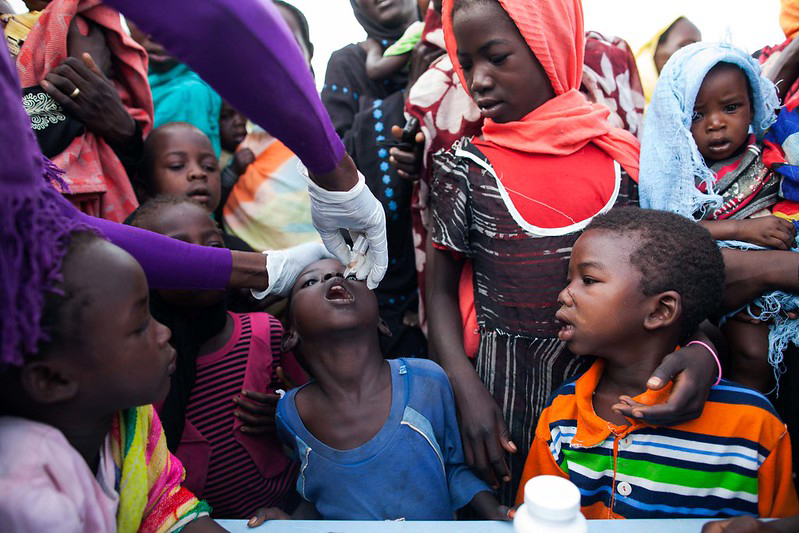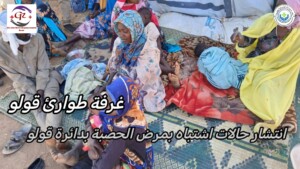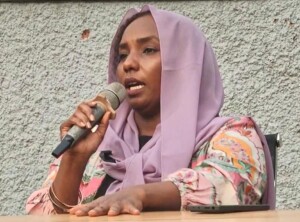Vaccine shortfall threatens children, pregnant women in Central Darfur

A child receives an oral polio vaccine during an earlier campaign in Darfur (File photo: Albert Gonzalez Farran UNAMID)
Health authorities in Nierteti, Central Darfur, sounded the alarm yesterday over the perilous circumstances faced by children and expectant mothers due to severe shortages in immunisation vaccines, alongside the lack of essential natal supplements since the onset of conflict.
Nour Mohamed, an advocate for displaced women in Nierteti camps, states the concerning health reports indicating that “30 per cent of children and women of childbearing age are malnourished”. “An impending humanitarian crisis will materialise within a month,” Mohamed urgently stresses.
Despite efforts by Sudan’s Ministry of Health, alongside UNICEF, and the World Health Organisation carrying out a measles and rubella immunisation drive in January, targeting approximately 5.4 million children across seven military-controlled states, challenges persist in areas like Nierteti, where administrative control lies with the Sudan Liberation Movement (SLM-AW), led by Abdelwahid Nur.
Adam Okero, a community leader in Nierteti, painted a bleak picture of the situation, highlighting widespread hunger and an acute water scarcity, a situation intensified further by pollution to water sources.
A recent influx of newly displaced people in Nierteti has strained the area, Okero states that “overcrowding reaching critical levels, exacerbating unemployment and diminishing livelihood opportunities”.
According to recement figures from the UN’s IOM Displacement Tracking Matrix in Sudan, Central Darfur state is hosting five per cent of the total displaced population. Nierteti camps have also served as a refuge for thousands of displaced individuals since 2003.
Okero emphasised the vital need for medical supplies as health centres remain inactive, contributing to the mounting malnutrition rates among the most vulnerable.
The community leader also states that the skyrocketing prices of essential products, including corn, sugar, meat, and cooking oil, compounded issues for the already suffering families.
He called for the immediate intervention from humanitarian and aid organisations to prevent the looming calamity, highlighting the critical need for food assistance, healthcare services, and clean water.











 and then
and then